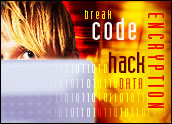
As a result of a copy-protection secret being made public, individuals who posted instructions on the Internet that outlined how to use software to break DVD copy protection are off the hook after a long legal battle.
A copyright owners group known as the DVD Copy Control Association (DVD CCA) — mainly composed of Hollywood studios and copy-protection technology companies — called for dismissal of its lawsuit against Andrew Bunner of California, against whom the association was seeking an injunction after he published a computer program known as DeCSS, which circumvents DVD copy-protection measures.
The request for dismissal came after a Norwegian court twice upheld that the writer of the DeCSS program — Jon Johansen, also known as “DVD Jon” — was also innocent in creating the code and posting it online. Free speech proponents called the dismissal a victory, and while the DVD CCA gave no reason for the request in its court filing, the move was viewed as an acknowledgement that the DVD descrambling code is not a trade secret.
“DeCSS has been available on hundreds if not thousands of Web sites for four years now,” said Electronic Frontier Foundation legal director Cindy Cohn. “We’re pleased that the DVD CCA has finally stopped attempting to deny the obvious: DeCSS is not a secret.”
Joining DVD Jon
Bunner, whose fight with the DVD CCA consortium dates back more than four years, was sued along with hundreds of others after posting the well-known DVD crack online.
The CCA-supporting Motion Picture Association of America also had pressed Norwegian officials to bring charges against Johansen in Norway, but lost the case and a recent appeal in which the courts affirmed Johansen had not broken the law by cracking the copy protection and posting the feat on the Internet.
Those supporting the defense of Johansen and Bunner indicated the Norwegian court’s rulings are likely to have an impact on the U.S. cases. Prior to the CCA’s request for dismissal of the case, the California Supreme Court ruled last year that preliminary restraint on publication of a computer program — which the CCA was seeking — was limited to narrow circumstances.
No Longer Secret
Electronic Frontier Foundation staff attorney Wendy Seltzer told TechNewsWorld that the final outcome of the Norwegian case and the U.S. cases hinged on whether the widely published software program violated a trade secret.
“Basically, once the information is so widely spread, the court won’t protect it as secret as it once was,” Seltzer said.
After Johansen’s acquittal, Seltzer predicted that resolution of the case would “break apart the DVD CCA claim to hold trade secrets in DeCSS” and affect the cases in the United States.
“It’s not a misappropriation of trade secret,” Seltzer said.
Dismissed But Still Derided
In response to Johnasen’s acquittal last month, the MPAA indicated it might try to appeal to the Norwegian Supreme Court and is lobbying for legislative changes in Norway. Referring to “an apparent defect in Norwegian law,” the movie studio group also criticized the creation and posting of the DVD hack program.
“The actions of serial hackers such as Mr. Johansen are damaging to honest consumers everywhere,” the association said in a statement. “While the ruling does not affect laws outside of Norway, we believe this decision encourages circumvention of copyright that threatens consumer choice and employment in the film and television industries.”
The DVD CCA was not available for comment. However, the CCA did indicate that its request for dismissal of the Bunner case marked a changing legal strategy. At the same time, U.S. officials announced they had arrested a man in Illinois accused of copying and distributing advance copies of major movies including “Mystic River,” “Master and Commander: The Far Side of the World” and “Last Samurai.”
The MPAA, however, indicated that it still views posting of the DeCSS code as a violation of law, citing the controversial Digital Millennium Copyright Act (DMCA) and a previous case.
“The DVD CCA’s decision seems logical as there are several other laws which make it clear that the posting of DeCSS is against the law,” MPAA vice president and chief technology counsel Dan Robbins said in a response to TechNewsWorld. “We are comforted by the clear language in the DMCA that makes posting of such code illegal and that this law has been upheld in Universal v. Corley.”





















































